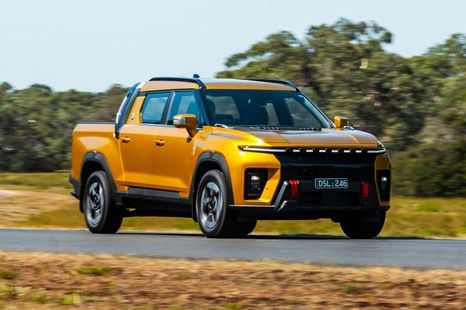

Ben Zachariah
2026 KGM Musso EV review
43 Minutes Ago
The new-look Suzuki S-Cross is the company's flagship model, with some positive attributes. But it has stiff competition at this price.
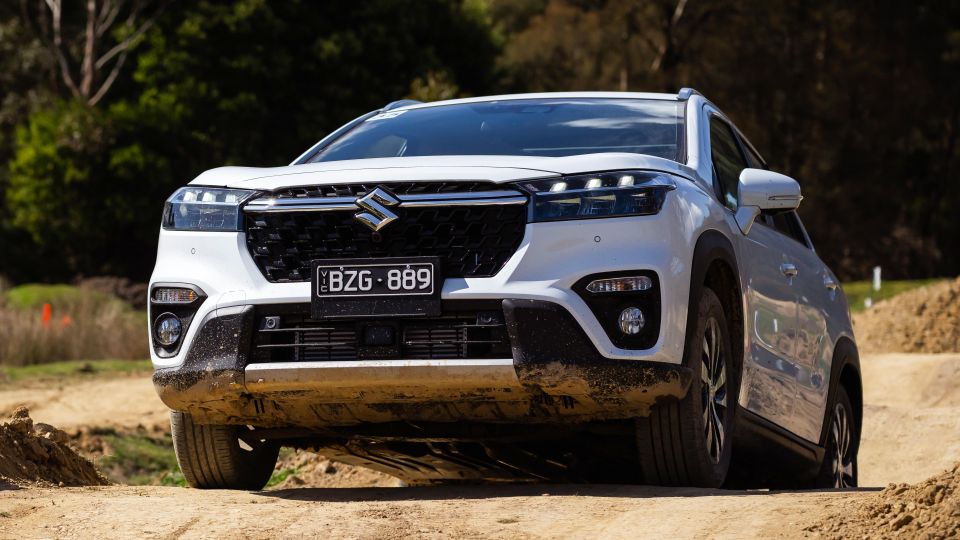
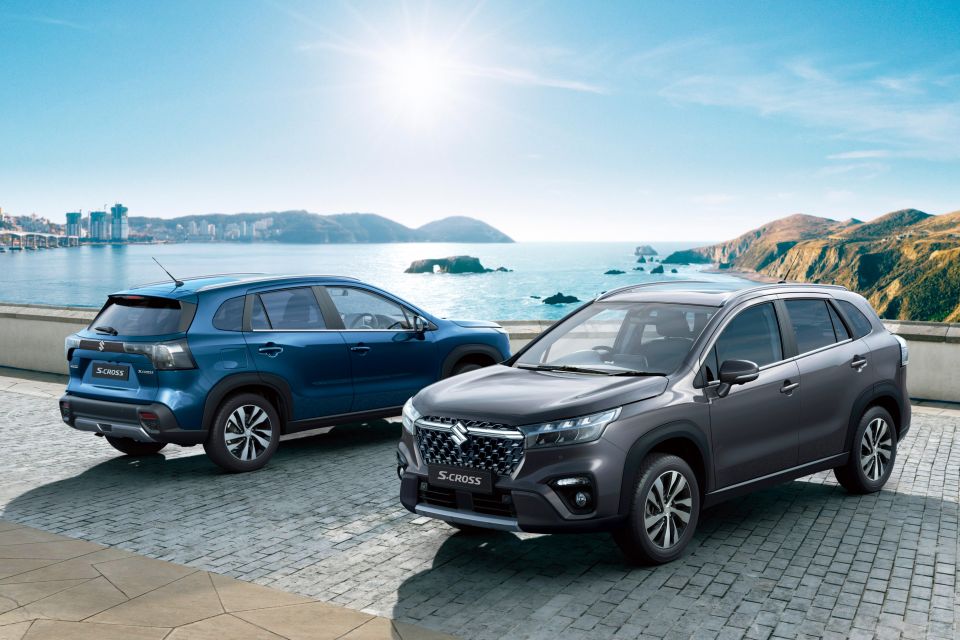

Quickly see how this car stacks up against its competition. Select any benchmark to see more details.
CarExpert brings reviews, research tools and trusted buying support together, guiding you from research to delivery with confidence.
Suzuki has launched a heavily upgraded version of the S-Cross small SUV, which becomes its new flagship offering above the Vitara.
The comprehensive update brings a more attractive and completely new design, more modern infotainment, and the company’s AllGrip all-wheel drive (AWD) system as standard.
The outgoing S-Cross was front-wheel drive (FWD) only, like much of the class, but Suzuki is pushing this one as both more capable, and deserving of a premium price.
It enters the bustling small SUV market against some very worthy small SUV competitors, but does it do enough to warrant more attention than its forgotten predecessor?

The AWD-only Suzuki S-Cross is relatively more expensive than the FWD-only old model – by between $10,000 and $12,500, in fact. The entry S-Cross costs $40,490 before on-road costs, climbing to $44,490 for the S-Cross Prestige.
To put this into context, a Kia Seltos with optional AWD costs between $37,290 and $42,700 before on-roads depending on spec grades, while the Mazda CX-30 with AWD fitted is priced between $39,690 to $47,690. The updated Volkswagen T-Roc R-Line AWD goes for $44,700.
The AWD-only Subaru XV is priced from $33,190 to $42,090, and the soon-to-launch Toyota Corolla Cross with a novel hybrid AWD opens at $42,250. Even the larger Mitsubishi Eclipse Cross with all-paw traction goes for between $35,990 to $41,990.
Looked at from another perspective, a Hyundai Kona N, a proper performance SUV, costs less than $5000 more than the S-Cross Prestige at RRP.
All models bar the Subaru come cheaper with FWD too, and let’s be honest – these cars rarely leave tarmac. Relatively well-equipped this Suzuki S-Cross may be, but it’s not compelling value at RRP. Being sourced from Europe (Hungary) adds cost.
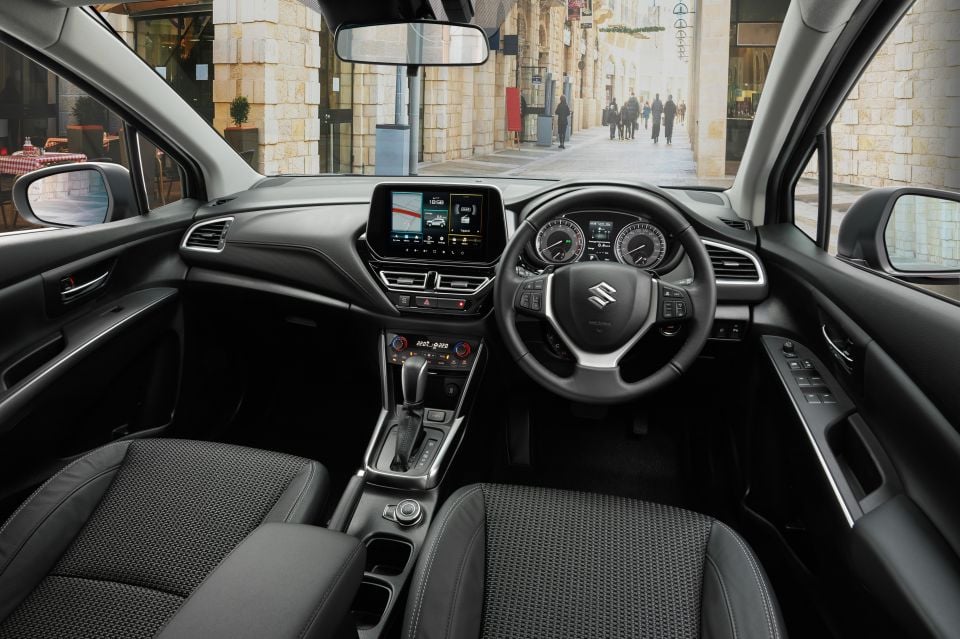
Buy your new car without the stress. It's fast, simple and completely free.
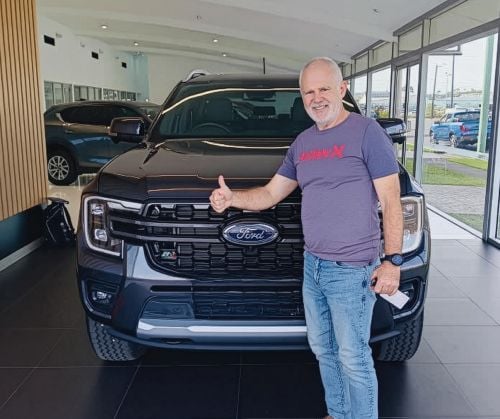
Great service from Travis and team, second time I have used this business would not hesitate to recommend them to anyone
Craig C.
Purchased a Ford Ranger in Sunshine Coast, QLD
CarExpert helped Craig save thousands on his Ford Ranger, now let us save you on your next new car.
Find a dealIt’s immediately clear how Suzuki has kept the S-Cross’s weight down, with the doors feeling very light, a great initiative..
Base grades get fabric seats, and the Prestige adds leather accents on the bolsters. In both grades the seating movements are manual.
The steering wheel adjusts for rake and reach, and behind it sits two analogue gauges with a digital trip computer between – including a speedo.
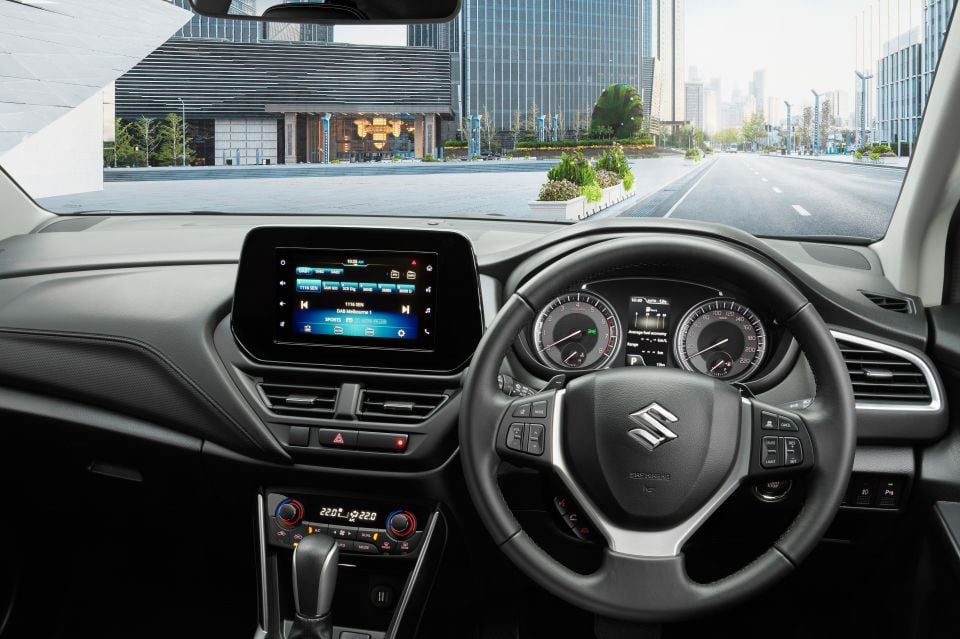
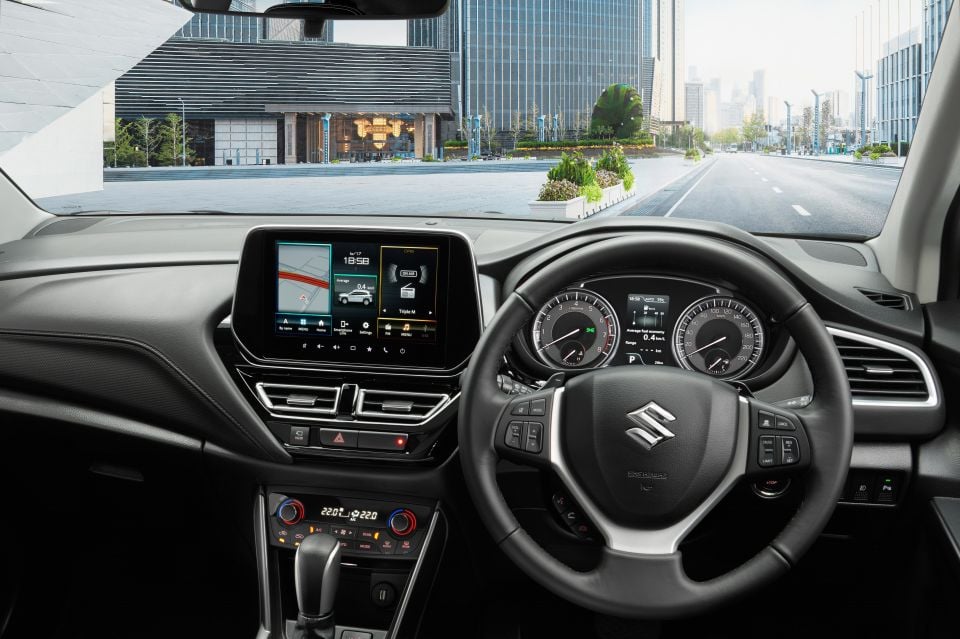
You sit up nice and high, giving you a commanding road view, and the large windows make the interior feel bright and airy – especially in the Prestige with its large sunroof. Outboard visibility is also excellent.
There are a lot of carryover aspects to the interior, including the climate controls, wheel, door buttons, centre tunnel, and gear shifter.
Thankfully Suzuki has updated the infotainment system, and added some nicely padded surfaces along the dash – though the doors and dash-top are still covered in harder trims.
Flagship grades get a new 9.0-inch touchscreen with new software, sat-nav, digital radio, wireless Apple CarPlay (and wired Android Auto), and a decent 360-degree camera with a vey slick rotating opening sequence.
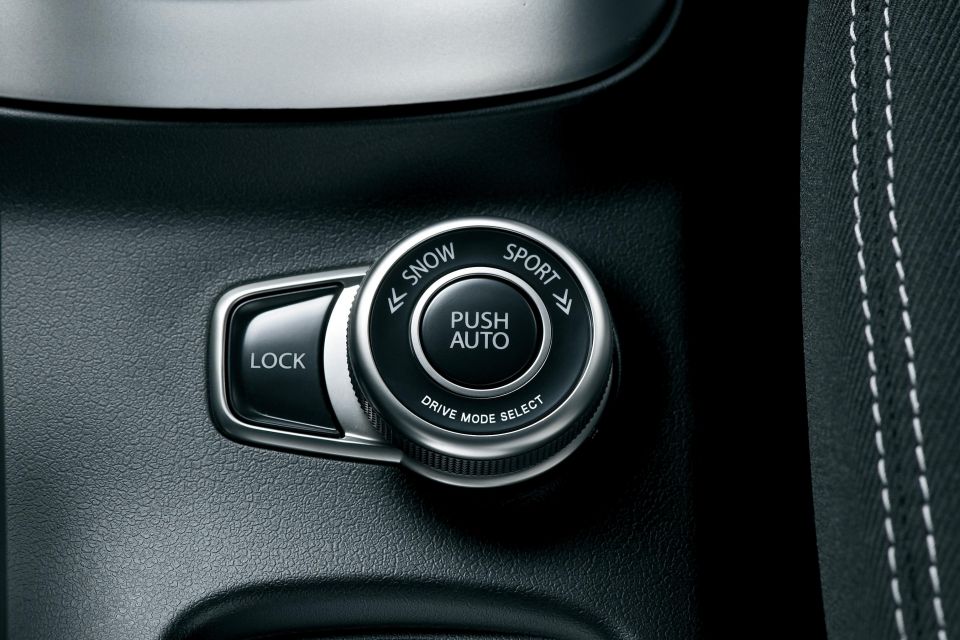
It’s the best Suzuki infotainment system we’ve used to date and brings it on-par with what competitor systems from other brands do.
Unfortunately, the entry S-Cross grade makes do with a smaller 7.0-inch touchscreen which downgrades you to wired Apple CarPlay/Android Auto, and a rear-view camera – though you still get embedded satellite navigation.
You know you’ve lost the 360 camera in the basey, since the shortcut hard button in the Prestige is replaced by a blank.
The whole layout is very simple to operate, and built to last. However, none of it feels particularly premium – which the price point might suggest.
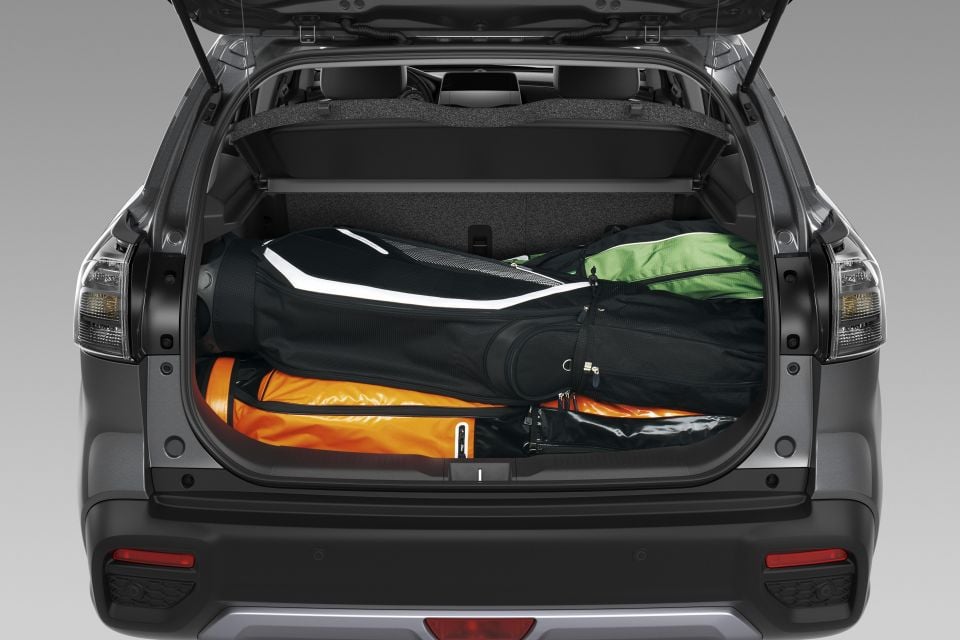
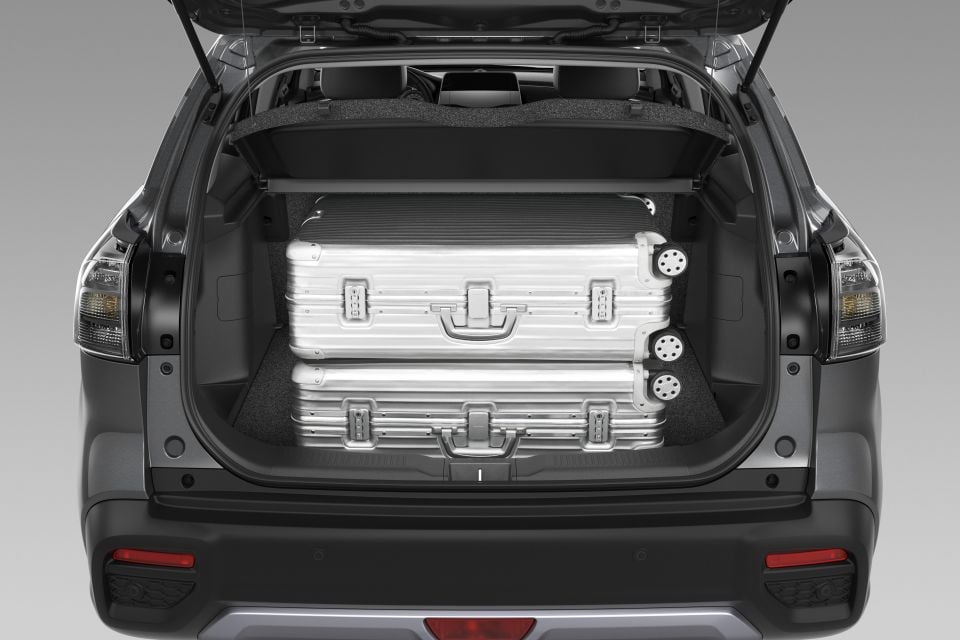
The S-Cross is the same size as the old one and uses the same wheelbase, even though looks can be deceiving.
That makes it 4305mm long, 1785mm wide, 1585mm tall, and 2600mm between the wheels. That makes it a smidgen smaller than a Kia Seltos or Mitsubishi ASX.
Despite these compact dimensions, rear legroom and foot room is adult-friendly, although there are no rear vents or USB points – just a cupholder-armrest. Prestige grades with the sunroof offer restricted rear headroom, putting a dent in practicality.
Boot capacity is 430 litres, expanding to a maximum 1230L with the back seats down, folded 60:40. There’s a two-level loading floor, small storage tubs, and a 12V socket, plus a temporary spare wheel underneath.
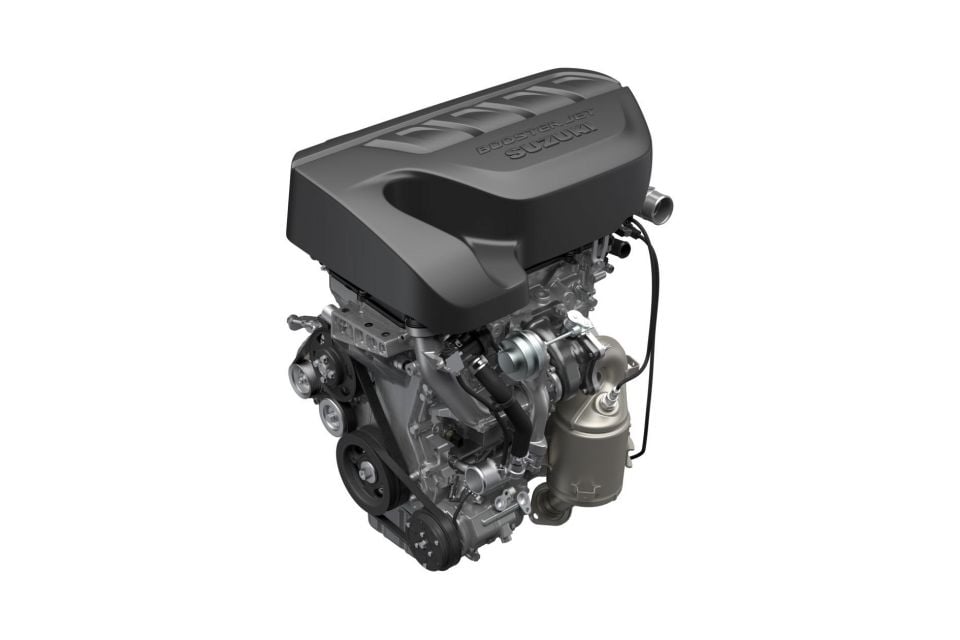
The drivetrain carries over unchanged: it’s a 1.4-litre turbo-petrol with power and torque outputs of 103kW and 220Nm respectively.
It runs through a variable AWD system with an available 50:50 locking mode, but which preferences the front tyres on tarmac.
The transmission is a six-speed torque-converter automatic.
Suzuki quotes a combined-cycle fuel consumption figure of 6.2 litres per 100km, equating to emissions of 145g/km.
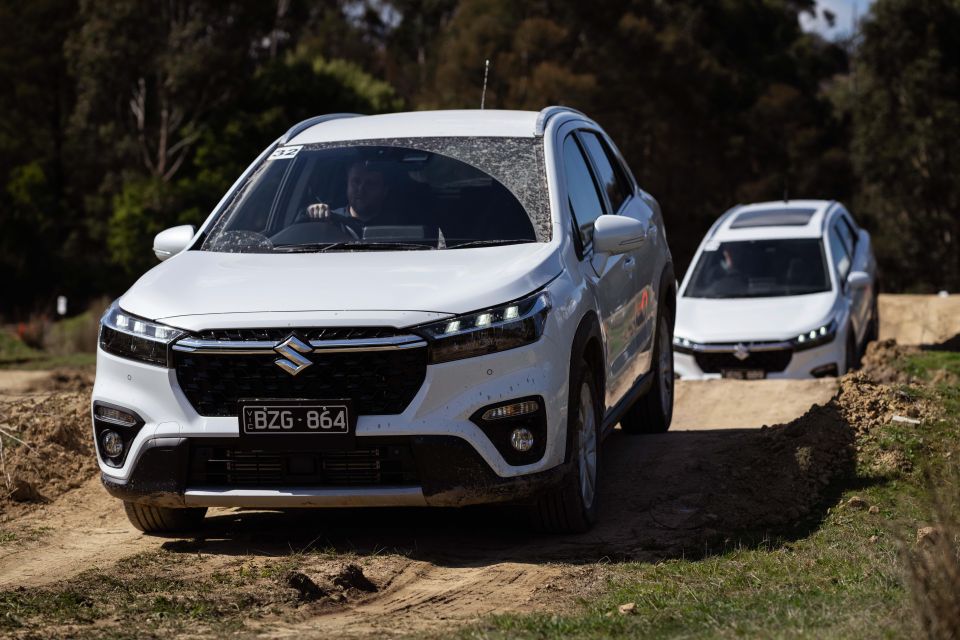
There’s a charm to the way the S-Cross drives.
One thing playing in the Suzuki’s favour is its light weight: just 1290kg in Prestige guise. For some context, that’s more than 100kg lighter than a Toyota Corolla hatchback.
Less weight means more performance, reduced fuel use, and more agile handling.
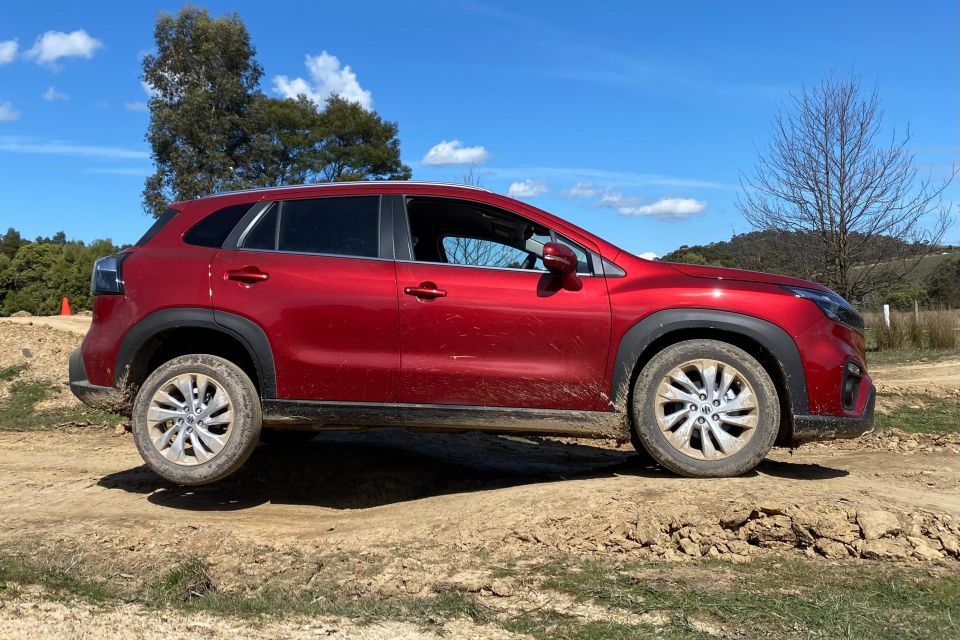
You sit up nice and high and have good outboard vision, and on a winding road it feels eager to change direction in agile fashion, with very light yet relatively direct steering.
It also rides over pockmarked surfaces and dirt roads quite well, with its simple MacPherson strut front and torsion beam rear suspension setup having little trouble keeping things composed.
Noise, vibration and harshness levels felt quite well contained, although our brief introductory launch drive didn’t comprise much in the way of coarse-chip surfaces. Our test car’s Continental Contact Eco 6 tyres are good quality.
One thing to note is that, while I found a quick stint on a well-known piece of twisty road quite fun to negotiate in the S-Cross, the brakes quickly showed excessive heat retention – and I was not going above the speed limit. This will unlikely be a real world issue when driven normally.
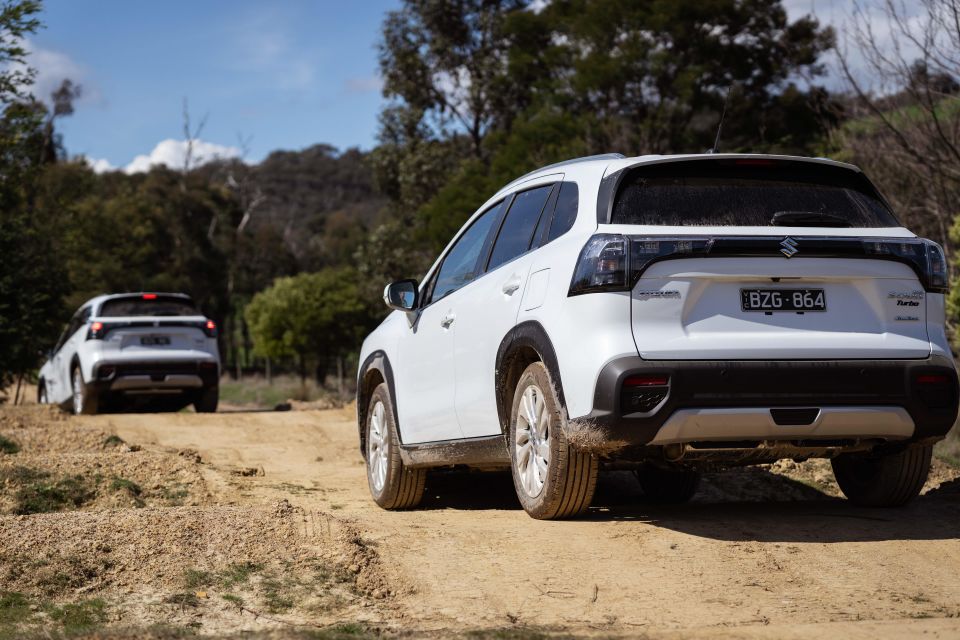
Because that little ‘BoosterJet’ engine has so little weight to lug about, it feels sprightly, with plenty of low-down torque and a simple-but-effective torque-converter auto. There are paddle shifters, but they’re made of cheap-feeling plastic and not all that ergonomically placed.
A real point of difference is the AllGrip AWD system, which defaults to front-wheel drive in normal driving but can variably shuffle torque rearward when needed. Selecting Sports mode changes the throttle response and shift timing, though the steering feels no heftier.
While clearance is limited, the system’s low-grip Snow mode numbs the throttle and relaxes the ESP intervention, while its locking function sets the front to rear torque distribution to 50:50, helping limit wheel-spin on low-traction surfaces.
It’s perfectly capable on a light duty trail, or a snow trip.
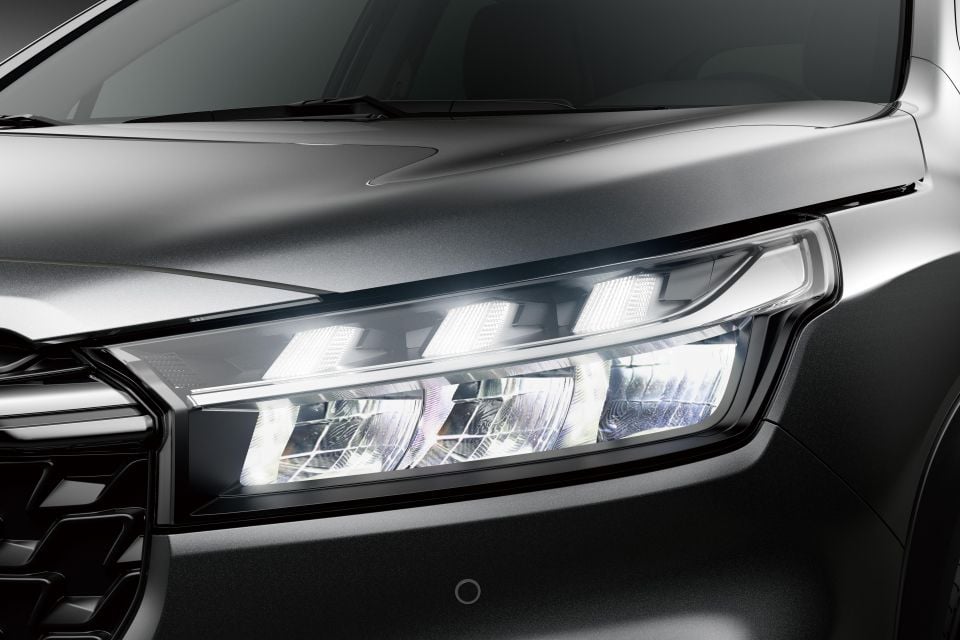

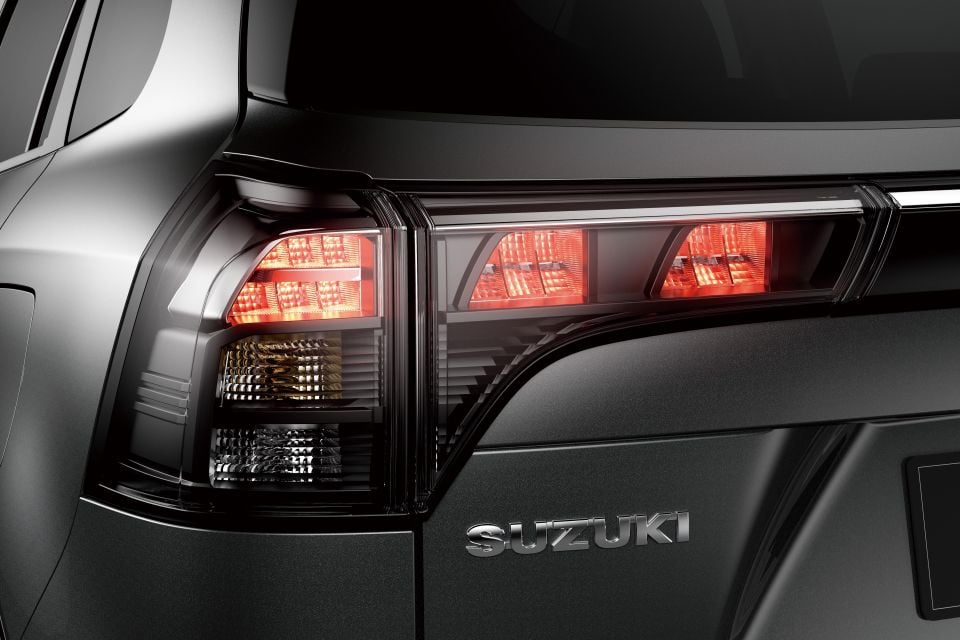

S-Cross highlights:
S-Cross Prestige adds
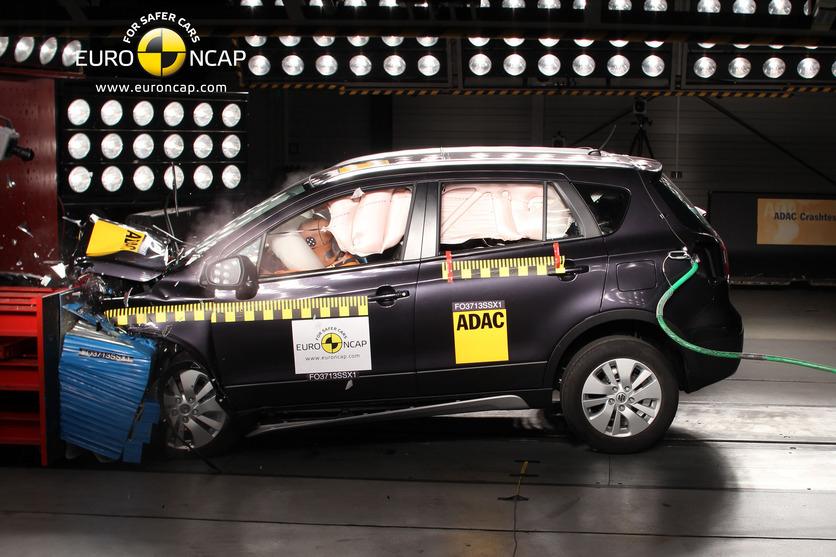
This updated S-Cross lacks an ANCAP crash rating for now. The old version had five stars, albeit with a 2013 date stamp.
Standard safety features include:
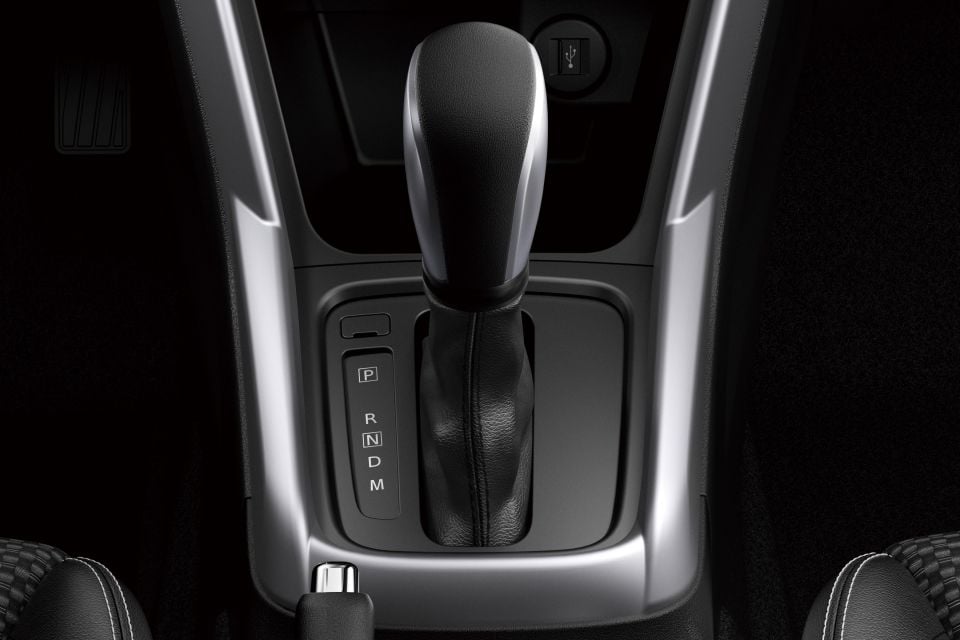
Suzuki’s provides a five-year, unlimited kilometre warranty with roadside assist and capped-price servicing.
The company hasn’t divulged service prices for the updated model, but for context the 2022 S-Cross with the same engine had capped servicing advertised at $329 for the first, third and fifth services, $429 for the second, and $529 for the fourth.
Intervals were annual or 10,000km, whichever comes first, and we’d expect the 2023 model to have a similar schedule. We’ve reached out to Suzuki to confirm this detail and will update the story when we know more.
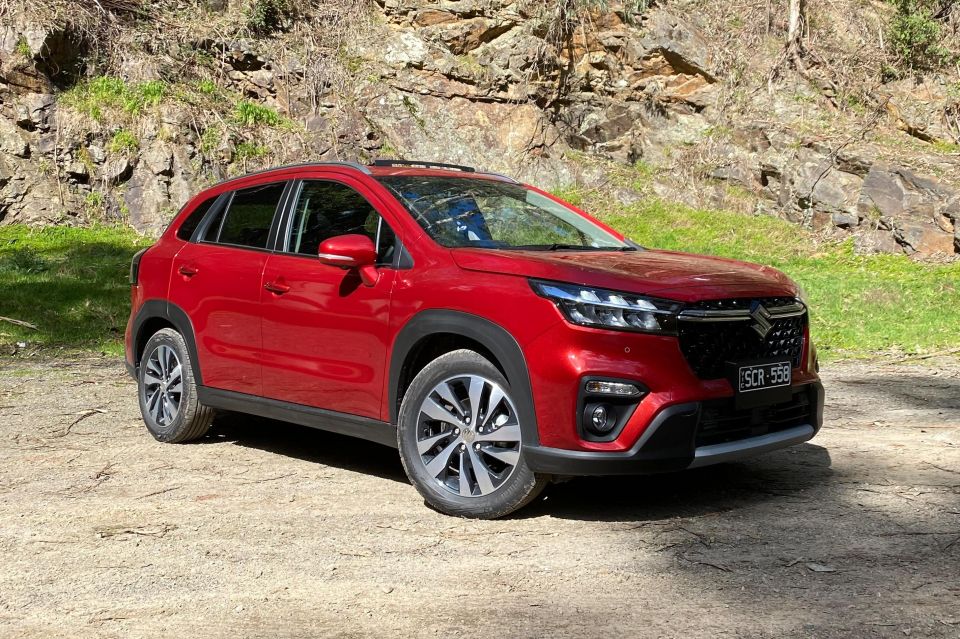
CarExpert brings reviews, research tools and trusted buying support together, guiding you from research to delivery with confidence.
The better-looking new Suzuki S-Cross is likeable in a distinctly ‘Suzuki’ way.
It’s low on frills but high on sensible touches, feels light on its feet and zippy, has some mild soft-road chops, is nice and airy on the inside, and offers more technology than other Suzukis do.
But it also doesn’t really stand out in any meaningful way above a long list of fierce competitors, and its interior feel and feature list don’t really live up to the price being asked.
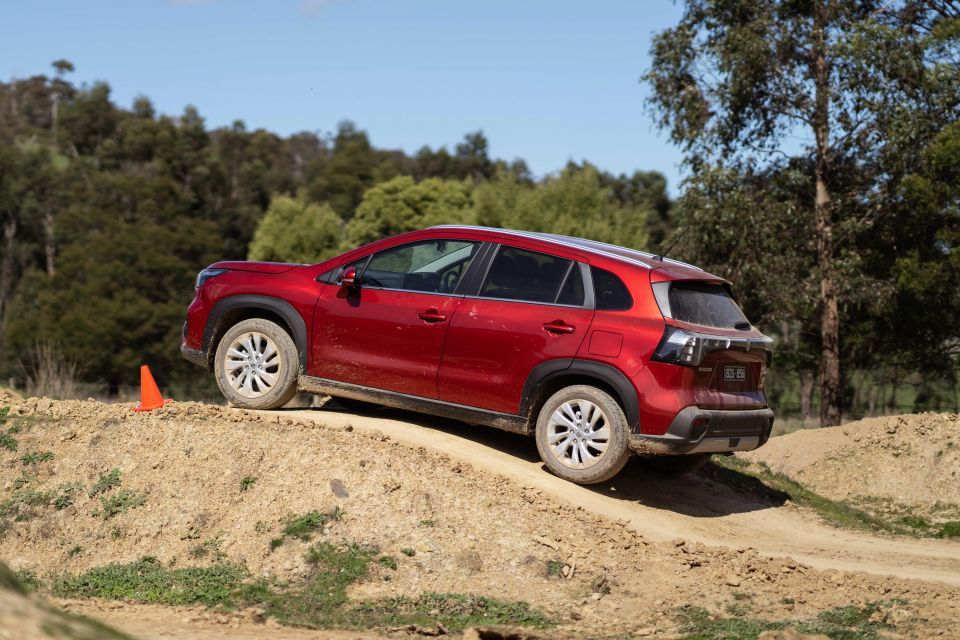
Click the images for the full gallery
CarExpert brings reviews, research tools and trusted buying support together, guiding you from research to delivery with confidence.
Suzuki S-Cross
Suzuki S-Cross Sales rolling 12-months#
*Based on VFACTS and EVC data
Looking for complete Suzuki S-Cross price history?
Our Suzuki S-Cross Pricing Page shows exactly how prices have changed over time.
2023
$38,990
2023
$40,990
2023
$41,490
2023
$44,490
Add CarExpert as a Preferred Source on Google so your search results prioritise writing by actual experts, not AI.


Ben Zachariah
43 Minutes Ago


James Wong
44 Minutes Ago
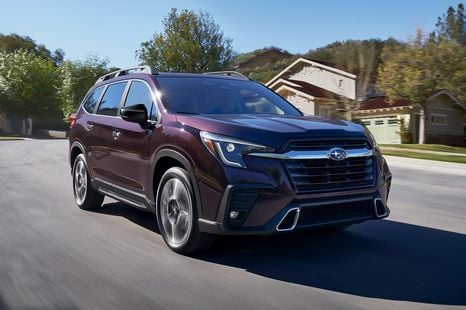

James Wong
44 Minutes Ago
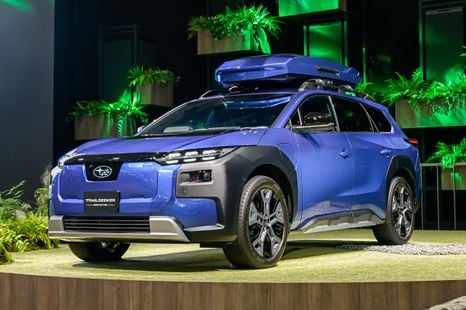

James Wong
44 Minutes Ago
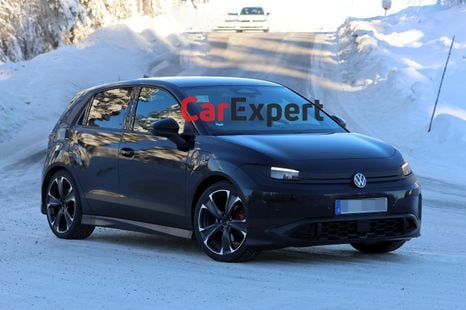

Damion Smy
7 Hours Ago
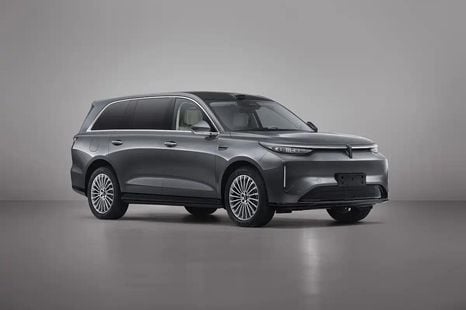

William Stopford
8 Hours Ago
Add CarExpert as a Preferred Source on Google so your search results prioritise writing by actual experts, not AI.
* Average savings based on recent CarExpert customer transactions. Actual savings will vary depending on vehicle make and model, location, stock availability, and other factors.
† Displayed prices exclude on-road costs such as delivery charges, registration fees, number plates, insurance and applicable road taxes. These prices are subject to change without notice and may not reflect current market pricing or dealer offers.
 Automotive Vehicle Spec Data & 4K images Powered by JATO Dynamics Ltd
Automotive Vehicle Spec Data & 4K images Powered by JATO Dynamics Ltd